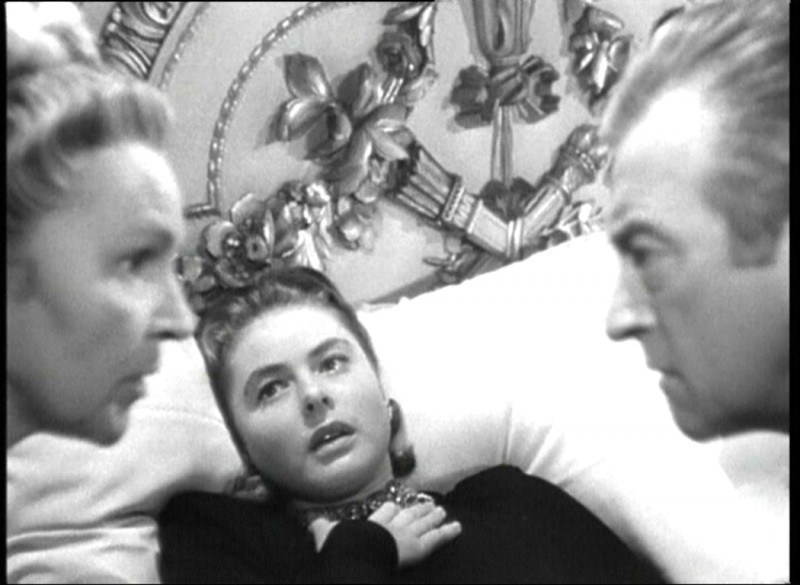One of the best acted films of the 1960s and superbly directed by Bryan Forbes, the black-and-white cinematography makes Seance wonderfully atmospheric and creepy. The streets seem permanently wet and the air damp and depressing, much like Myra's own mental state.
A long scene introduces the couple, middle-aged and looking about as weary as their furniture. They converse quietly in an upstairs room of the house. We soon understand that finances are tight; and while we can't quite figure out what they are talking about, something is afoot. Something ominous. A highlight of the film is its pacing and Director Forbes builds our curiosity as he takes his time revealing Myra's plan -- to kidnap the young girl of a wealthy family and demand a ransom. She doesn't want the money, but the opportunity to make a name for herself as a reliable psychic. After Billy has taken the girl and hidden her in the woods, Myra intends to offer her services to police to locate the victim.
 |
| Kim Stanley as Myra. |
Richard Attenborough is similarly terrific as Billy, easily the best performance of his career. Initially we see him as a milquetoast, completely subservient to his wife's wishes. As the plot unfolds, we get a clearer picture of this man's silent torture, and Attenborough handles it beautifully. Living with Myra obviously requires great sacrifice. He know his wife teeters on the edge. Though he considers her plan is dangerous, he loves her dearly and can't bring himself to object too strenuously.
Attenborough gets two choice scenes, the first the actual abduction as he waits in the trees for the girl to appear outside her school, his face etched with anxiety. He nabs her, steals the chauffeur's car, and quickly eludes pursuit, switching vehicles at an abandoned site. It is tense and scary. Later, he and Myra arrange for a money drop where he barely escapes capture by police waiting in the subway.
When the father of the girl rejects Myra's advances, suspecting her of nothing more than a opportunistic con woman. It is a devastating blow to Myra and the film's mood suddenly changes, along with her dark scheme. For the first time, the audience begins to fear for the girl's safety. Later, the grief-stricken mother shows up to take part in the weekly seance Myra holds for her small group of sad clients, a turn that exacerbates Billy's fear of detection and guilt.
 |
| Attenborough as the beleaguered Billy Savage. |
John Barry's score, one of his earliest, enhances the uneasy mood of the film and demonstrates how vital music is to a story. It is particularly effective during the abduction and gives an appropriate feeling of suspense throughout. Barry had already worked on the first two Bond films and was about to make a big name for himself on the third, Goldfinger.
The similar theme of a lost child haunting a mother appeared more famously in Edward Albee's play, Who's Afraid of Virginia Woolf, which opened in 1962. The child there, of course, never existed and was merely a "game" played between the two protagonists, George and Martha.
Stanley's work here was recognized by the New York Film Critics. And her voice might sound familiar to those unfamiliar with her acting: she performed the opening and closing narration of To Kill a Mockingbird (1962) as an adult Scout.














.jpg)